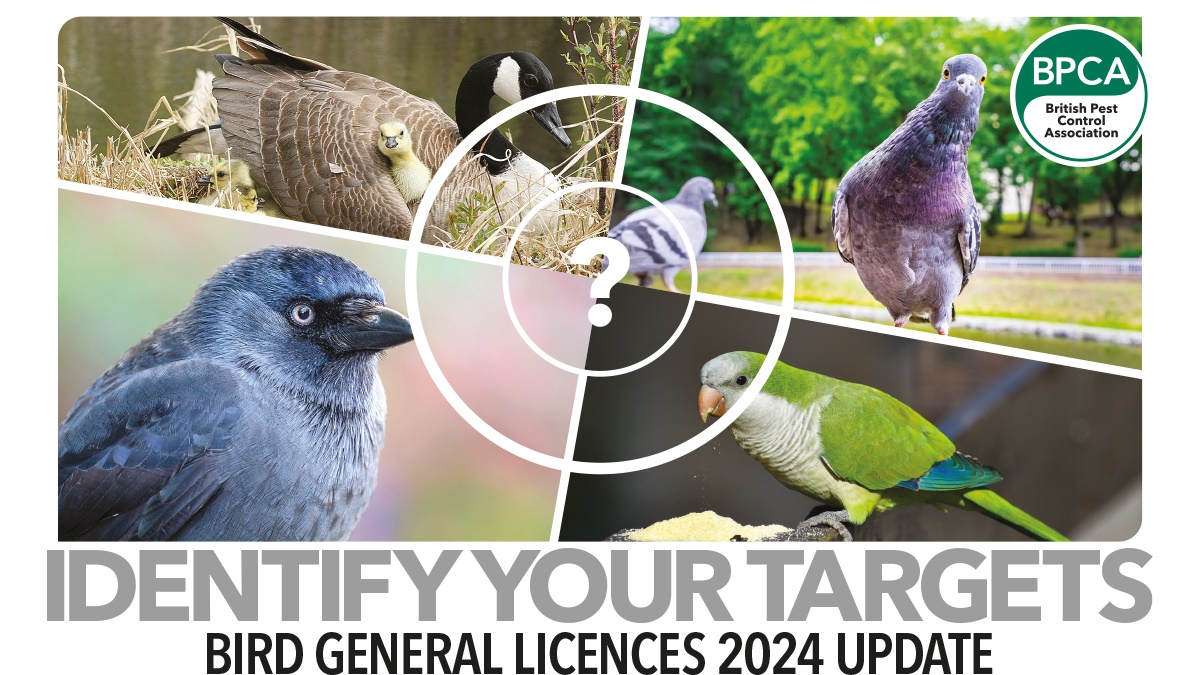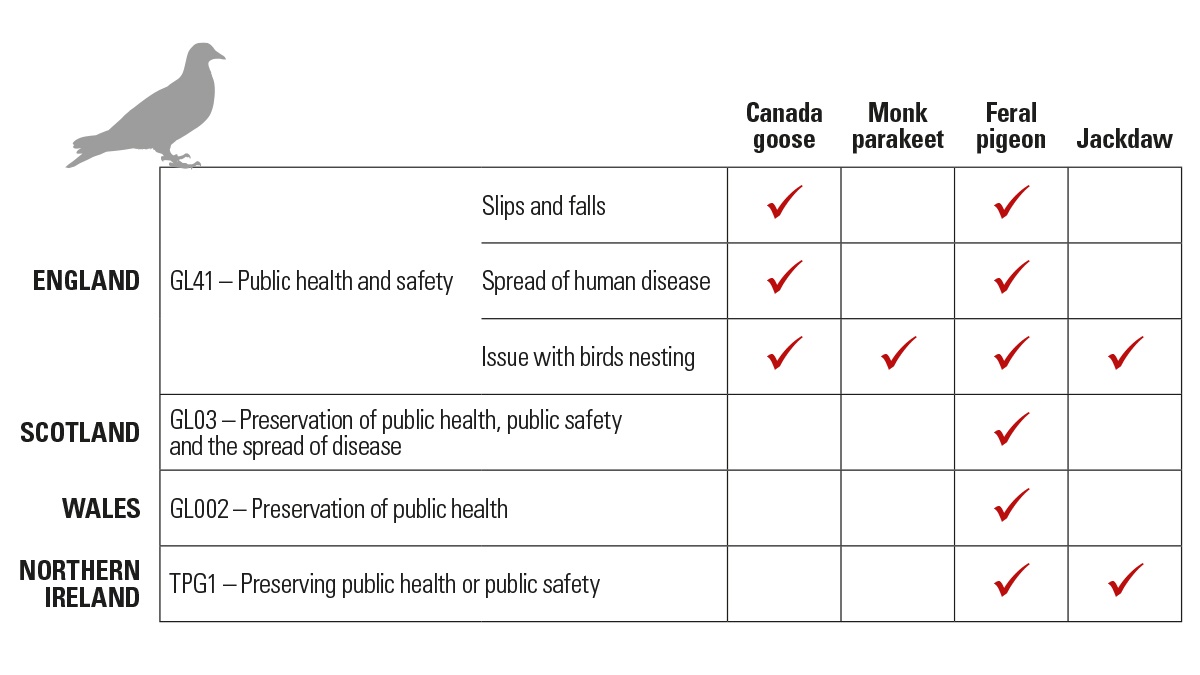PPC114 | Technical
Mark Wenman, tutor for BPCA’s Certificate in Bird Management course and Technical Sales Manager at BPCA member company Pelsis, reviews changes to UK general licences for bird control.

Bird general licences are issued by the relevant UK Government agencies to provide a legal basis for authorised persons to consider lethal methods of control.
You do not need to apply for general licences, but it is imperative that you read and understand the latest issues and abide by their terms and conditions.
Historically, the licences have been issued annually on the first of January each year. Government consultations and reviews have led to recent interim changes. The bird general licences for England will again cover a period of two years.
Below is a review of the licence changes for 2024. There are minimal amendments from 2023.
In my opinion, there appears to be no intention to consider the inclusion of gulls in general licensing in any part of the UK currently.
There are many pieces of general advice that I could give when considering the use of licences.
One is to fully identify the bird; for example, collared doves and wood pigeons have now been removed from most bird licences. If our intention is to consider control of feral pigeons, we must ensure that we fully identify them as such.
The bird general licences throughout the UK all have a requirement to consider and apply alternative lawful methods before proceeding. This can be complex so please ask for advice if appropriate.
My final point is when using the licence on or near a ‘site of special scientific interest’ (SSSI). These may also be known as ‘European sites’.
These sites are now listed individually with specific advice and guidance. Please read these as most guidance pertains to the disturbance of Schedule 1 protected birds.
|
England
Department for Environment, Food and Rural Affairs (Defra)
More info
|
|
Those for professional bird management have been issued for two years, applicable from 1 January 2024 until 31 December 2025.
There are no changes within the licence re-issues.
The three most relevant licences are:
|
|
Wales
Natural Resources Wales
More info
|
|
Valid from 1 January 2024 to 31 December 2024.
There have been some changes within the licence reissues, noted below.
The three licences most relevant to professional bird management are:
Under the new general licences, if any European protected species of animal (as defined within the general licence) or any wild bird of prey is captured, killed or injured in the course of action carried out under this licence, NRW must be advised of that fact as soon as practicable.
Following detailed consultation with stakeholder bodies, Natural Resources Wales changed the 2024 bird General Licences.
In 2022, Birds of Conservation Concern (BoCC) Wales highlighted a 25-year decline in magpie populations in Wales, thereafter placing them on the amber list. Therefore, magpies are now not included on General Licence GL001.
Scoveston Fort has been added to the list of SSSIs where the relevant general licences do not apply.
And the cormorant, red kite, reed bunting and song thrush are no longer included as beneficiary species of GL004. The chaffinch, dunnock, garden warbler, Mediterranean gull and rook are added as beneficiary species of GL004.
|

|
Northern Ireland
Department of Agriculture, Environment and Rural Affairs (Daera)
More info
|
|
Valid from 1 January 2024 to 31 February 2024, after which it is assumed that they will be reissued, at the time of writing.
Consultation and amendments to the bird licences occurred previously in 2023. There are no changes within the 2024 licence re-issues.
The three most relevant licences are:
- To kill or take certain birds TPG1. Kill or take certain birds, including the taking, damaging or destruction of their eggs, or the disturbance of such a bird or the young of such a bird for the purpose of preserving public health or public safety
- To kill or take certain birds TPG2. Kill or take certain birds, including the taking, damaging or destruction of their eggs, or the disturbance of such a bird or the young of such a bird for the purpose of preventing the spread of disease and preventing serious damage to livestock, foodstuffs for livestock, crops, vegetables, fruit, growing timber and fisheries
- To kill or take certain birds TPG3. Kill or take certain birds, including the taking, damaging or destruction of their eggs, or the disturbance of such a bird or the young of such a bird for the purpose of conserving wild birds.
|
|
Scotland
NatureScot
More info
|
|
Valid from 1 January 2024 to 31 December 2024.
There are no changes within the licence re-issues.
The three most relevant licences are:
Please remember that from 1 April 2020 NatureScot Licensing took over trap registration from Police Scotland. You are required to register all bird traps.
|
Further help
Remember, if you’re a BPCA member and you have questions about bird licensing, or a specific situation you need help with, contact our technical team for support.
technical@bpca.org.uk

Source: